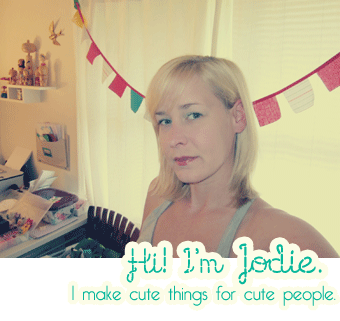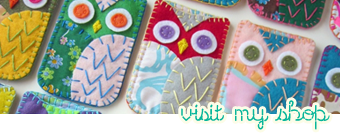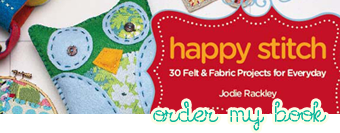| Calgary Herald |
| |||
|
It's virtually impossible to find clothing that fits all the criteria of ethical fashion -- in other words, clothing that protects the environment, human rights and labour rights. But some choices are better than others. Here are our guidelines for making those choices.
Do
- Buy Canadian
If it's made here, it must follow certain social, environmental and labour guidelines. And it's always good to support home-grown designers and workers, especially when cheap off-shore materials and labour are threatening so much of their livelihood.
Some labels to look for: Roots, which improved its labour standards after criticism during the 2004 Olympics; Mountain Equipment Co-op; designers such as Calgary's Paul Hardy and Vancouver's Chulo Pony.
- Buy organic
Cotton is the world's favourite fabric. It is also one of the most polluting. Now a number of labels are turning to organic cotton instead.
Some labels to look for: Nike; American Apparel (though there has been some controversy over just how organic their organics are); Patagonia; designers such as Giorgio Armani and Edun. Or buy alterative fibres, such as hemp, linen, ramie or organic wool.
- Buy second-hand, vintage or recycled clothing
Nothing could be better for the environment than recycling what's already out there. Lucky us: Not only is vintage the hottest fashion trend going, but a number of talented young designers are refashioning thrift store finds into fabulous new looks.
Some labels to look for: Toronto's Preloved; Calgary's Natalie Gerber; Value Village.
- Buy from co-operatives
Increasingly, groups of Third World workers are joining co-operatives that help them get the materials and orders for their work, then co-ordinate distribution. These groups ensure the workers are paid fair wages and work reasonable hours.
Some labels to look for: Ten Thousand Villages; Just Shirts; Minkha. And, for 100 per cent union-made apparel, check out No Sweat (http://nosweatapparel.com).
- Buy from companies that have made a point of transparency
If a company is willing to disclose who its suppliers are and the labour practices in its plants, it's much less likely to be abusing human and environmental rights.
Some labels to look for: The non-profit Fair Labour Association has certified Adidas-Salomon, Liz Claiborne, Phillips-Van Heusen and Nike.
Don't
- Buy items made in countries with known human rights violations
If it's made in China -- as it seems everything is these days -- you have no way of knowing whether it was made in a sweatshop or not. If it was made in a desperately poor dictatorship, like, say, Bhutan or Haiti, you can be fairly sure someone, somewhere was exploited. Until economic pressure is brought to bear, they will have no incentive to change their practices. Some alternatives to look for: Buy from countries you know have fair labour policies in place.
- Buy knockoffs
Those cheap copies of designer bags come with a hidden cost. For one thing, they are theft, pure and simple, from the original design houses. They have also been linked to organized crime, drug smuggling, money laundering, human trafficking and a host of other crimes.
Some alternatives to look for: Save up and buy the real thing. Otherwise, carry a cute non-designer bag and flaunt your individuality.
- Buy synthetics
If you knew what went into synthetic fabrics, you wouldn't want them next to your skin.
Many contain suspected carcinogens such as formaldehyde and perfluorinated chemicals (the stuff that makes clothes "no-iron") as well as dyes, flame retardants and other chemicals.
Some alternatives to look for: Natural organic fibres; eco-spun fortrel, which is a high-performance fleece made from recycled soda bottles.
For more information
- The CUSO fair trade fashion show will be held May 11 at Artspace Gallery, 1235 26th Ave. S.E. It will feature speaker Adam Neiman from Boston's No Sweat Apparel. Tickets are $10, $8 for students. For information, go to www.cuso.org or call 283-2871.
- Just Shirts are plain T-shirts made by a co-operative of single mothers in El Salvador. They are 100 per cent cotton, short- or long-sleeved and come in a variety of colours. They cost $10 to $15, or $6 to $7 for bulk orders. For information, go to www.justshirts.ca.
- Minkha is another co-operative of women, these based in Bolivia, who knit gorgeous, brightly coloured sweaters that retail for $125 to $250. Go to www.minkhasweaters.com.
- Ten Thousand Villages is an international organization that has worked with artisans in Third World countries for almost 60 years. Go to www.TenThousandVillages.com or check out the two local stores at 220 Crowchild Tr. N.W., 270-0631, and 8318 Fairmount Dr. S.E., 255-0553.
Other websites with information about fair trade and ethical fashion include:
- www.FairTradeResource.org
- www.FairTradeFederation.org
- www.transfair.ca
- www.oxfam.org
- www.fairtrade.net
- www.IFAT.org (International Fair Trade Association)
- msn.org (Maquila Solidarity Network)
- http://fairtradenetwork.ca
- www.fairtradeconcepts.com
- www.organicconsumers.org
http://www.canada.com/topics/lifestyle/story.html?id=9d97e5a8-8b95-462b-8e07-0c7ccf5b95b4



































No comments:
Post a Comment